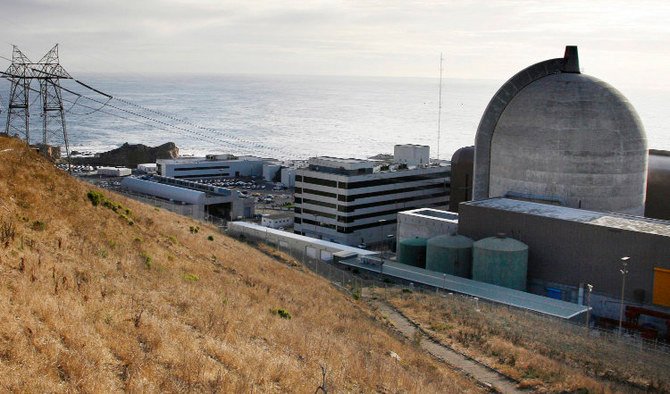
- ARAB NEWS
- 04 Jul 2025

The two key parties in any new nuclear deal with Iran would be Washington and Tehran. Yet to the surprise of some, it is Europe that has emerged as the lynchpin of any agreement that might be concluded.
Josep Borrell, the EU’s foreign affairs chief, announced the “final” text of a deal this month that he said is non-negotiable, based on parameters agreed in March after about a year of talks in Vienna.
He stated that Washington and Tehran now have to make “political decisions” about whether or not to move forward with the revival of the deal.
The original agreement, formally known as the Joint Comprehensive Plan of Action, was signed in 2015 but US President Donald Trump unilaterally withdrew the US from the deal in 2018.
The external reactions to Europe’s brokering of a potential agreement, while its focus is heavily diverted by Ukraine, have been hugely mixed. For one thing, views differ dramatically on the wisdom of a deal. Many European countries, and the Joe Biden team, believe an imperfect deal is
probably better than no deal at all. But there are vociferous critics of this approach, especially Israel.
There are also those who perceive that despite the efforts of Brussels, an agreement remains a distant prospect. This includes market participants such as Goldman Sachs, which last week poured cold water on the prospects of a deal.
Amid this cacophony of viewpoints, however, it is the perspective of the Biden team and the decision-makers in Tehran that matter most. Among the latter, a green light would be needed not only from Iran’s Supreme National Security Council but also from Supreme Leader Ali Khamenei.
The two sides have broadly welcomed the European overtures. Iranian negotiating team adviser Mohammed Marandi said that the “remaining issues are not very difficult to resolve.” The US State Department acknowledged that the draft circulated by Brussels represents “the best and only basis on which to reach a deal.”
Even if a deal does not happen this year, Brussels, the Biden team and some of the key decision-makers in Tehran will not want to see the negotiation process break down completely.
Andrew Hammond
Yet, multiple key differences remain. For instance, Iran reportedly wants the international community to shut down a long-running investigation by the International Atomic Energy Authority into traces of uranium found several years ago at three undeclared nuclear sites.
While that, and some other demands, might be resolved, what is much more tricky is Tehran’s desire for a guarantee that the new deal will be binding, regardless of the changing views of future US administrations. The Biden team cannot legally guarantee that and the reality remains that a new president could seek to cancel any deal, just as Trump did. Significant hurdles therefore remain but there does now appear to be a political tailwind that could get this process “over the line.”
One of the potential upsides of a deal for Europe and the US is that some market analysts think Iran could raise exports of oil by between 1 million and 1.5 million barrels a day, or up to 1.5 percent of global supply, possibly within six months. This, combined with factors such as any continued economic weakness in China and the wider, slowing world economy, could possibly result in significant reductions in oil prices.
It is not only European leaders who would welcome lower energy prices but also others, including Biden as the Democrats prepare for difficult midterm elections in November. While the overwhelming majority of US voters will not be influenced, per se, by the security elements of a nuclear deal with Iran, an agreement could have wider beneficial effects for the Democrats if oil prices continue to drop amid the backdrop of the continuing war in Ukraine.
Even if a deal does not happen this year, Brussels, the Biden team and some of the key decision-makers in Tehran will not want to see the negotiation process break down completely. For now, it suits all of their political interests for it to remain “alive,” even if an agreement cannot currently be reached.
Some key Biden officials, whose current attention is primarily focused on Ukraine, perceive that this might be the least-worst way to try to place some constraints on Iran’s nuclear program for the foreseeable future. The Trump team’s policy of using “maximum economic pressure” to incentivize Tehran to amend its behavior is undermined by nations such as China and India continuing to buy Iranian oil.
Biden has, of course, said that military action remains on the table, too. However, there might not be a serious option to completely take out Iran’s nuclear program in this way, and any such action would risk sparking a wider regional war and/or attacks by Tehran on the US and its global interests.
For Iran, meanwhile, stretching out the negotiations provides a potential window of opportunity for amassing a large stockpile of enriched uranium, in violation of the terms of the 2015 deal from which Trump withdrew. Tehran is reportedly enriching uranium to 60 percent purity, well above the limit agreed seven years ago.
So amid the huge uncertainty over whether a deal can be reached, what is more clear is that Brussels will not want to see the negotiation process break down completely, and probably neither will the Biden team or some of the key players in Tehran. It suits all their political interests, for differing reasons, that the negotiations remain in play — for now.
• Andrew Hammond is an associate at LSE IDEAS at the London School of Economics.